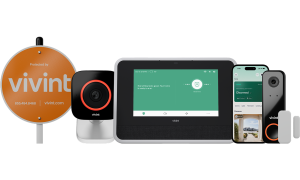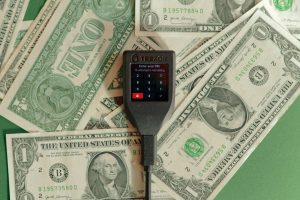Imagine never fumbling for your keys again or worrying about lost copies falling into the wrong hands. A biometric house door lock can give you that peace of mind and convenience.
This smart security solution uses your unique fingerprints or facial features to unlock your door, making your home safer and easier to access. If you want to protect your loved ones and simplify your daily routine, keep reading to discover how a biometric lock can transform your front door and why it might be the perfect upgrade for your home.
How Biometric Locks Work
Biometric house door locks use unique body features to allow entry. They scan parts like fingerprints or faces.
These locks compare scanned data with stored information to decide if access is allowed.
Types Of Biometric Sensors
Different biometric locks use various sensors to identify users. Some common types include fingerprint, facial, and iris scanners.
- Fingerprint Sensors:Capture patterns of ridges on fingers.
- Facial Recognition:Analyze facial features like eyes and nose shape.
- Iris Scanners:Scan the colored ring around the pupil.
- Voice Recognition:Identify users by their voice tone and pitch.
Enrollment And Recognition Process
First, users enroll by giving their biometric data to the lock. This data is saved securely inside the device.
When someone wants to enter, the lock scans their biometric feature. It compares the scan to the stored data.
- If the scan matches, the lock opens the door.
- If the scan does not match, access is denied.
- Some locks allow multiple users to be enrolled.
- The process is fast, usually taking less than a second.
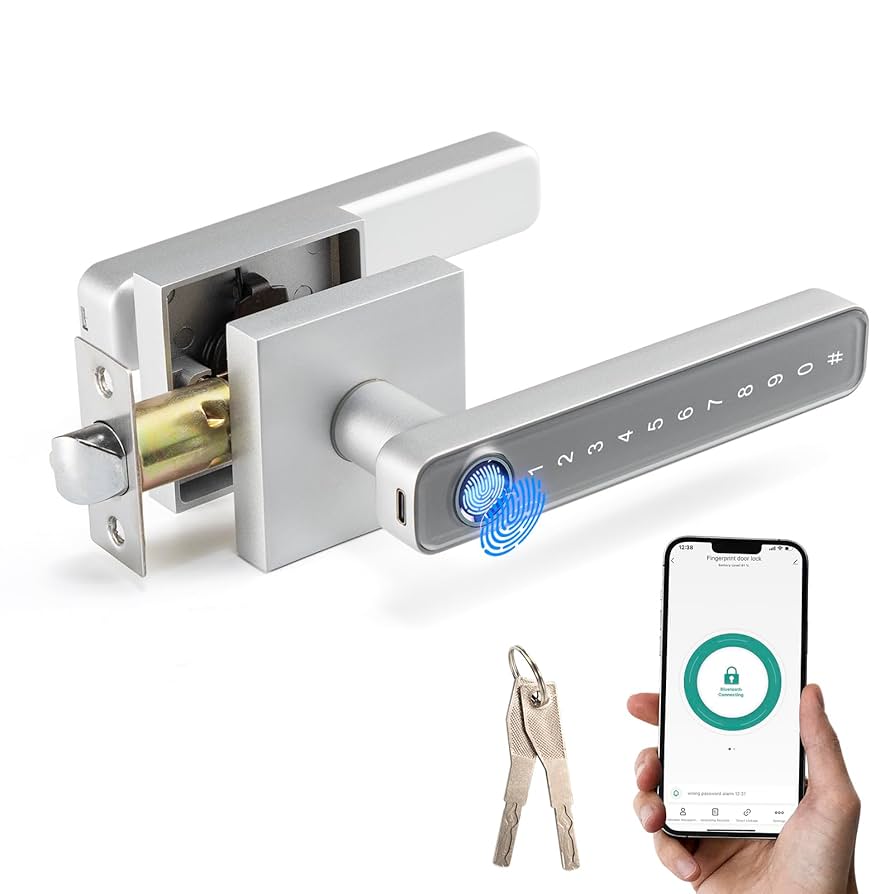
Credit: www.amazon.ca
Advantages Over Traditional Locks
Biometric house door locks use fingerprints or other body features to secure your home. They offer new benefits that traditional locks cannot provide.
These locks improve safety and make entering your home easier. They remove the need for physical keys, which can be lost or copied.
Enhanced Security Features
Biometric locks check unique body traits like fingerprints. This makes it hard for strangers to open your door.
They also alert you if someone tries to tamper with the lock. Some models record who enters and when, helping you track access.
- Uses unique biometric data for entry
- Prevents unauthorized key copying
- Alerts on tampering attempts
- Records entry logs for security
Convenience And Keyless Access
Biometric locks let you enter without carrying keys. You only need your fingerprint or face to open the door.
This reduces the risk of losing keys or forgetting codes. Multiple users can be added easily without extra keys.
- No need to carry physical keys
- Easy to add or remove users
- Quick and simple access
- Works even in low light
Installation And Compatibility
Biometric house door locks add security with fingerprint access. Installing these locks is simple with the right tools.
Compatibility depends on the door type and lock model. Check these before buying a biometric lock.
Suitable Door Types
Biometric locks work best on solid doors. These locks need a strong surface for proper fitting.
- Wooden doors with standard thickness
- Metal doors with flat surfaces
- Composite doors designed for security hardware
Doors with glass panels or very thin materials may not hold the lock firmly. Check door thickness and material before installation.
Diy Vs Professional Setup
Many biometric locks come with clear instructions. A person with basic skills can install the lock themselves.
Professional installation ensures the lock fits perfectly. Experts handle wiring and adjustments carefully.
- DIY installation saves money but needs tools and time
- Professional setup costs more but guarantees safety
- Choose professional help for complex door types
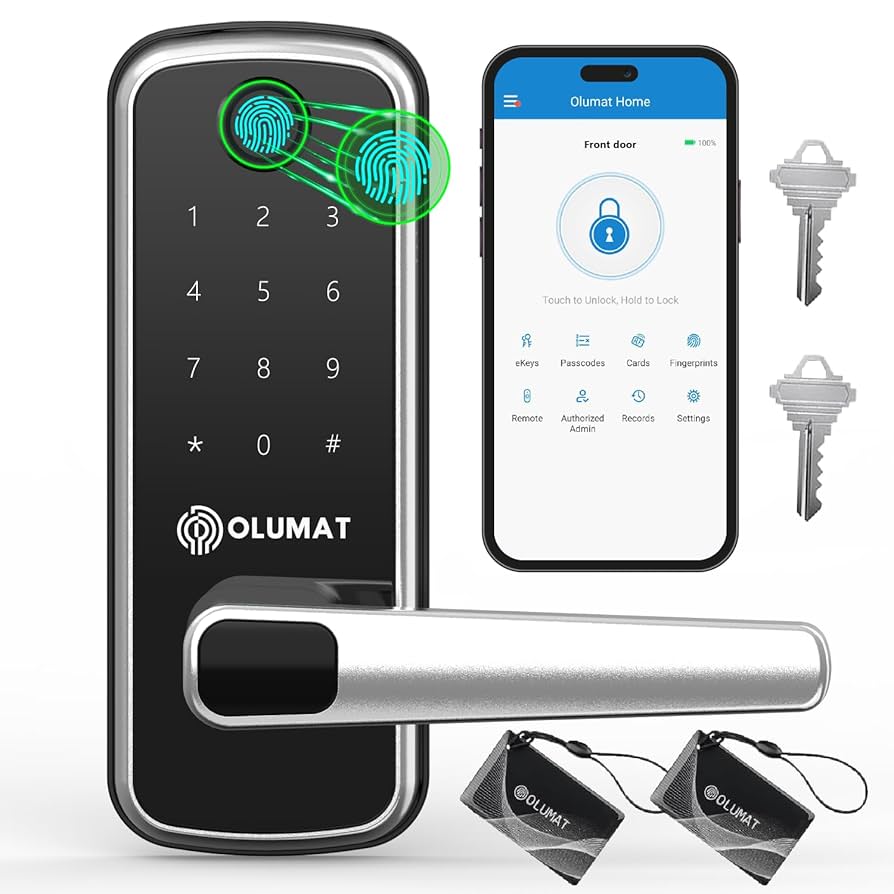
Credit: www.amazon.ca
Common Features And Technologies
Biometric house door locks use special technology to secure homes. They identify people by unique physical traits.
These locks offer keyless entry and improve safety. They come with different features to suit users’ needs.
Fingerprint Scanning
Fingerprint scanning reads the ridges and patterns on your finger. This helps the lock know who you are.
It is fast and easy to use. Most locks store many fingerprints for family members or trusted people.
- High accuracy in recognizing fingerprints
- Works in different light and weather conditions
- Quick response time for unlocking
- Prevents unauthorized access
Facial Recognition
Facial recognition scans your face to confirm your identity. It uses cameras and special software.
This technology is contactless and hygienic. It can work in low light and various angles.
- Detects unique facial features
- Can store multiple faces
- Works quickly for easy access
- Includes anti-spoofing measures
Mobile App Integration
Mobile app integration lets you control the lock using your smartphone. You can lock or unlock remotely.
The app often shows access history and sends alerts. You can also share digital keys with others.
- Remote door control from anywhere
- Real-time notifications for door activity
- Manage multiple users easily
- Set temporary or permanent access rights
Potential Challenges And Solutions
Biometric house door locks offer strong security but come with some challenges. Understanding these issues helps users use them better.
This article explains common problems and practical solutions for biometric locks.
Power Supply And Battery Life
Biometric locks need power to work. Most use batteries that can run out.
If the battery dies, the lock may stop working, causing inconvenience.
- Use high-quality rechargeable batteries to save money and reduce waste.
- Choose locks with low power consumption to extend battery life.
- Pick models that alert you when battery is low.
- Have a backup key or alternative opening method in case of failure.
False Rejections And Errors
Sometimes the lock may not recognize a registered fingerprint or face. This is called a false rejection.
False rejections can cause frustration and delay access to your home.
- Keep the sensor clean and dry for better recognition.
- Register multiple fingerprints or faces for more chances to unlock.
- Adjust sensor settings if the lock allows it.
- Use additional access methods like PIN codes or keys as backups.
Privacy And Data Security
Biometric locks store personal data like fingerprints or facial scans. This raises privacy concerns.
Protecting this data is important to avoid misuse or hacking.
- Choose locks that encrypt biometric data to keep it safe.
- Regularly update the lock’s software for security fixes.
- Use strong passwords for any connected apps or devices.
- Limit access to trusted users only.
Choosing The Right Biometric Lock
Biometric house door locks provide security with fingerprint or face recognition. Picking the right lock helps keep your home safe and easy to access.
There are many options available. Consider your needs before buying a biometric lock.
Budget Considerations
Biometric locks come at different price points. Set a budget before shopping to narrow your choices.
Cheaper locks may lack some features. Expensive models often offer better build quality and more options.
- Decide how much you want to spend
- Look for locks with essential features
- Balance cost and quality
Brand Reputation
Choose biometric locks from well-known brands. Trusted brands usually provide better products and support.
Research brands to find those with a history of quality and reliability.
- Check the brand’s years in business
- See if they offer customer support
- Look for warranties and guarantees
Customer Reviews
Reading customer reviews helps you learn about real user experiences. Reviews show how well the lock works over time.
Pay attention to common problems or praise in reviews. This helps you avoid bad purchases.
- Look for reviews on multiple sites
- Check both positive and negative feedback
- Focus on recent reviews for current info
Future Trends In Biometric Security
Biometric house door locks are becoming more common. They use fingerprints or face scans to keep homes safe.
New technology will make these locks smarter and easier to use. This will improve home security in the future.
Ai And Machine Learning Enhancements
Artificial intelligence helps biometric locks learn and improve over time. It can spot fake fingerprints or faces better.
Machine learning allows the lock to adjust to changes like cuts on fingers or new hairstyles. This reduces errors and keeps access smooth.
- Detects spoofing attempts more accurately
- Adapts to user changes automatically
- Improves recognition speed and accuracy
Integration With Smart Home Systems
Biometric locks will connect with smart home devices like lights and alarms. This allows better control and security.
Users can check lock status or grant access remotely through their phones. This makes managing home security easier and safer.
- Works with smart lights and cameras
- Allows remote locking and unlocking
- Supports voice control and automation
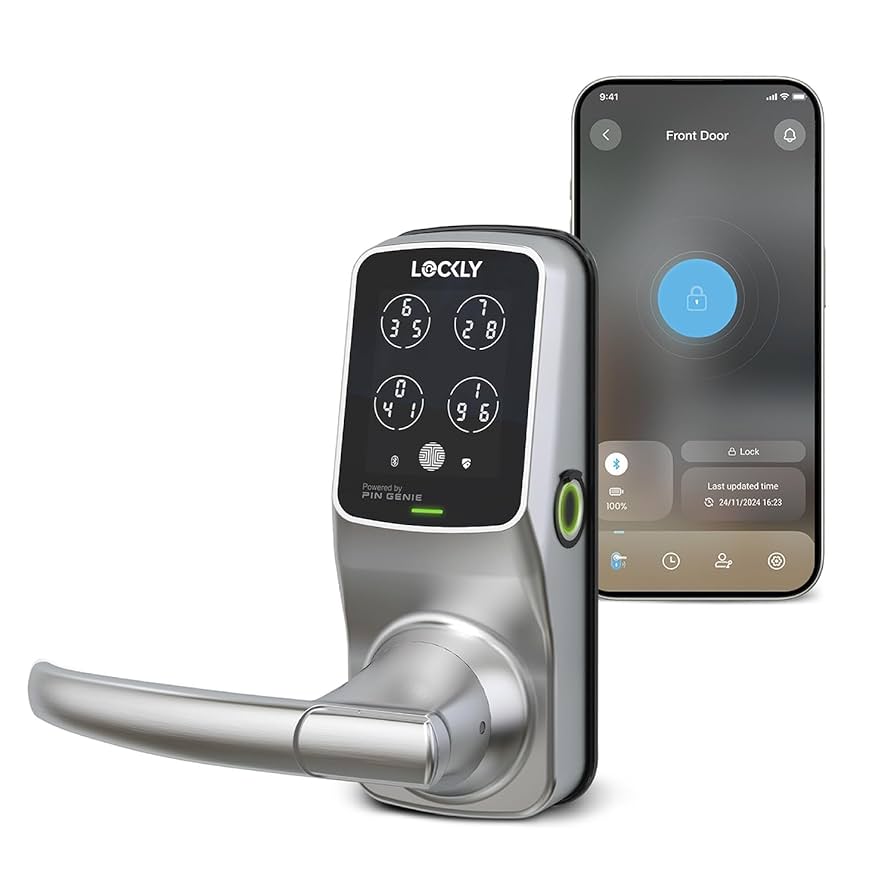
Credit: www.amazon.ca
Frequently Asked Questions
What Is A Biometric House Door Lock?
A biometric house door lock uses your unique physical traits for identification. Common traits include fingerprints and facial recognition. These locks offer enhanced security by ensuring only authorized individuals access your home. They’re user-friendly and eliminate the need for traditional keys, providing convenience and peace of mind.
How Does A Biometric Lock Enhance Security?
Biometric locks enhance security by using unique biological traits for access. Unlike traditional locks, they prevent unauthorized entry. They reduce risks associated with lost or stolen keys. Their advanced technology ensures only registered users can unlock the door, providing an extra layer of protection for your home.
Are Biometric Door Locks Easy To Install?
Yes, most biometric door locks are designed for easy installation. They often come with clear instructions and necessary hardware. Some models are compatible with standard door fittings. This allows for quick setup without professional help. Always check the lock’s compatibility with your door before purchasing.
Can Biometric Locks Be Hacked?
Biometric locks are designed with advanced security features to prevent hacking. They use complex algorithms to recognize unique biological traits. While no system is completely immune, biometric locks are generally more secure than traditional locks. Regular updates and choosing reputable brands can further enhance their security.
Conclusion
Biometric house door locks offer strong security for your home. They use your fingerprint or face to open the door. This makes it hard for strangers to get inside. You do not need keys or codes anymore. These locks are easy to use and save time.
Many people feel safer with this technology. It also adds value to your house. Choosing a biometric lock can bring peace of mind. A smart step for a safer home. Simple, secure, and modern.




